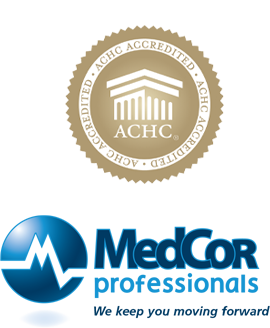
Back pain, specifically lower back pain, is something many of us will experience at some point in our life. If we experience it once, we are almost guaranteed to experience it again. With horror stories about poor outcomes, chronic pain, and subsequent surgeries, lower back pain can be scary for people. But it doesn’t have to be.
Lower back pain can be treated effectively without the use of medications and surgery if properly identified and treated quickly. However, before we get into the tips about treating back pain conservatively, let us talk about what may be going on in your back.
Nerves are very sensitive. So, when one gets compressed or irritated (there is a difference) others near it may also get irritated. That is our brain’s way of trying to get more information about the pain. This means that pain is not due to damage. It is very important to keep that in mind as we discuss this topic. The most common causes of pain in the lower back arise from natural processes that become more advanced as we age but start to show up as early as our late 20s. In most cases, we are not damaging our spine or anything in our back, it usually just needs some support. With this point in mind, let us dive into some tips to help treat lower back pain.
Tip #1: The Sooner, The Better.
I have already tipped my hand a little bit, but the best way to effectively treat back pain is to get it treated sooner rather than later. Chronic pain (longer than 3 months in duration) is certainly treatable, however, new onset (acute) pain is easier to address in the spine. The idea that a back pain that comes and goes and will eventually, “clear itself up” over time backfires on people in my experience. The fact that back pain does come and go, whether related to a specific injury or cause or not, shows just how resilient our spine can be.
Remember, pain is not always equal to damage. Our spine is built to handle the stress we place on it. However, if it is continuously put at a disadvantage, it will eventually let us know in the form of pain. That is why getting the root cause of your pain assessed and addressed quickly leads to the most success down the road. Even if the pain is starting to get better after a few days, identifying what is happening and why, will not only clear up this bout of pain, but help prevent it from returning.
Tip #2: It is Never Too Late, and Age Doesn’t Matter!
You probably saw this one coming right? As I mentioned, chronic low back pain is treatable and, like most pain, is not “normal” with age. Things like arthritis, disc bulges, and disc degeneration are incredibly common as we age, but they do not have to cause pain. In fact, 40-60% of people (depending on their age) show similar signs on X-rays and MRIs with no pain whatsoever! This phenomenon is even more common when we hit our 70s and 80s! Imbalances in our mobility, stability, and strength around the hips, core, and spine, are what cause these structures to put stress on nerves and cause pain. You may know someone who had surgery on their back and still has pain. That is because even though the disc bulge or arthritis was addressed, the extra stress placed on the spine from these imbalances was not. Conservative treatment won’t take away a disc bulge or arthritis, but it will address these imbalances very effectively, thereby treating the pain.
Tip #3: Not All Back Pain is the Same
I see people sharing articles on social media about effective ways to treat lower back pain and sciatica. Some of these articles are great but many of them include activities that are contributing to pain and depending on the structures in the spine, could in fact make the low back or sciatica pain worse.
To be successful, treatment must be specific to each person and must address the root cause of the pain and the structures involved. Being evaluated by a professional with expertise in this area can ensure we are not causing more pain when trying to relieve it. Physical therapists are experts in the evaluating the cause of pain and in the state of Maine you do not need to see a doctor before seeing a PT!
Tip #4: Conservative Treatment Must Cover ALL the Bases
Pain does not equal more damage, it can be treated and prevented at any age no matter how long it has been happening. Getting prompt and appropriate treatment for your current episode of back pain quickly is the most effective approach. As a physical therapist, I have seen many people who have tried “literally everything” with little to no success. It isn’t until we look at the entire picture (not just the back) that we become successful in treating and preventing their lower back pain. But what is your next step?
It takes a combination of conservative pain management techniques to get the best results. Addressing the imbalances between mobility, stability, and strength is, in my experience, most effective. When paired with interventions like heat, TENS units, postural supports and back bracing when appropriate, can help immensely. Finding the right provider for you is important as well. Look for a provider who can get you in quickly and provide a well-rounded treatment approach that is individualized to you and your current episode of back pain. They should also give you the tools to help prevent it from coming back which can be extremely effective without medication or surgery.
There are so many myths out there about lower back pain and as a physical therapist, I am passionate about busting those myths. My goal is to help you be less anxious about the pain and more confident that your issue is manageable, treatable, and preventable with the right approach. No one has to live with low back pain or sciatica. It does not have to be scary or inevitable, and the sooner you get treatment individualized for you the better. Now that you are armed with these insights, here’s to living a happier, healthier, and wealthier life doing what you love with who you love!
Contributed by:
Dr. Phil Finemore, PT, DPT, Owner of WorkFitME Mobile PT
for MedCOR Professionals, Scarborough, Maine

